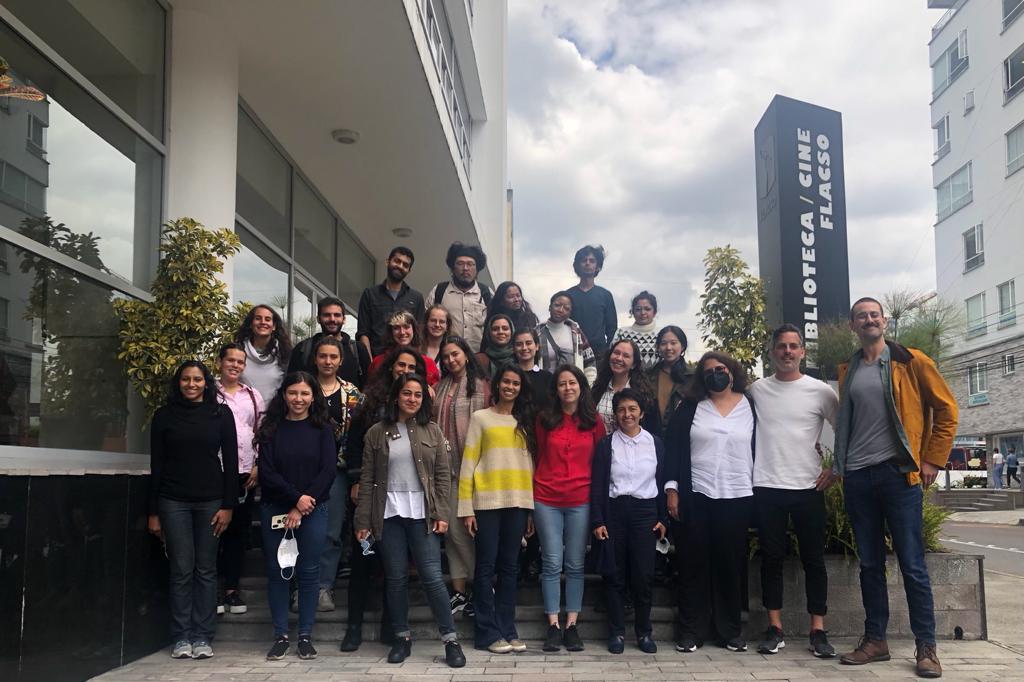Food sovereignty and urban orchards: community-led initiatives for sustainable food environments.
Barrio ‘La lucha de los pobres’, Quito. Ecuador. 13th to the 23rd of March 2022
We are happy to share the report Ashley Howard, research assistant and one of the MICSEA coordinadors wrote, in which he explains the work and methodology developed during the workshop in Quito.
STEP 3 – SOCIAL APPROACHES
Continuing into the next stage of the International Regeneration Studio in Quito, the MICSEA team expanded on their onsite physical assessments and offsite spatial diagnoses with a social focus to humanise the observational and technical data they collected in La Luchas de los Pobres. This component of the workshop was underpinned by qualitative transformative research methodologies with the aim to mobilise community perspectives and integrate ongoing local resiliency strategies via collaborative socio-spatial proposals.
In preparation for the research component, a series of cultural events were planned throughout the week to help integrate the workshop focus with local contexts. Headlining these activities was an educational visit to the Yuka Parque Museo Del Agua and its conservation park that is rejuvenating the regions endemic flora, fauna, and waterways. The tour aided in understanding ecological changes happening in the area over previous centuries as well as helping frame the cultural and environmental importance of blue and green Infrastructure in the Pichincha province. In another event, Marcelo de Saga, a media correspondent at FLACSO, hosted a character-building workshop focal on communication methods within local communities. Marcelo’s interactive approach provided empirical teachings on ethical engagement techniques within Ecuadorian and Andean epistemologies. Lastly, the team visited a small sustainable food producer in the town of Argelia, where the local civil society group, Asociación de Emprendedores de la Argelia Alta, informed the class on the benefits and challenges of Alternative Food Systems and how contemporary and traditional farming techniques can be scaled into upcoming community initiatives. Qualitative planning was then undertaken by the MICSEA students, which was cross-checked with the workshop leaders and community representatives before being prepared for use in the field.
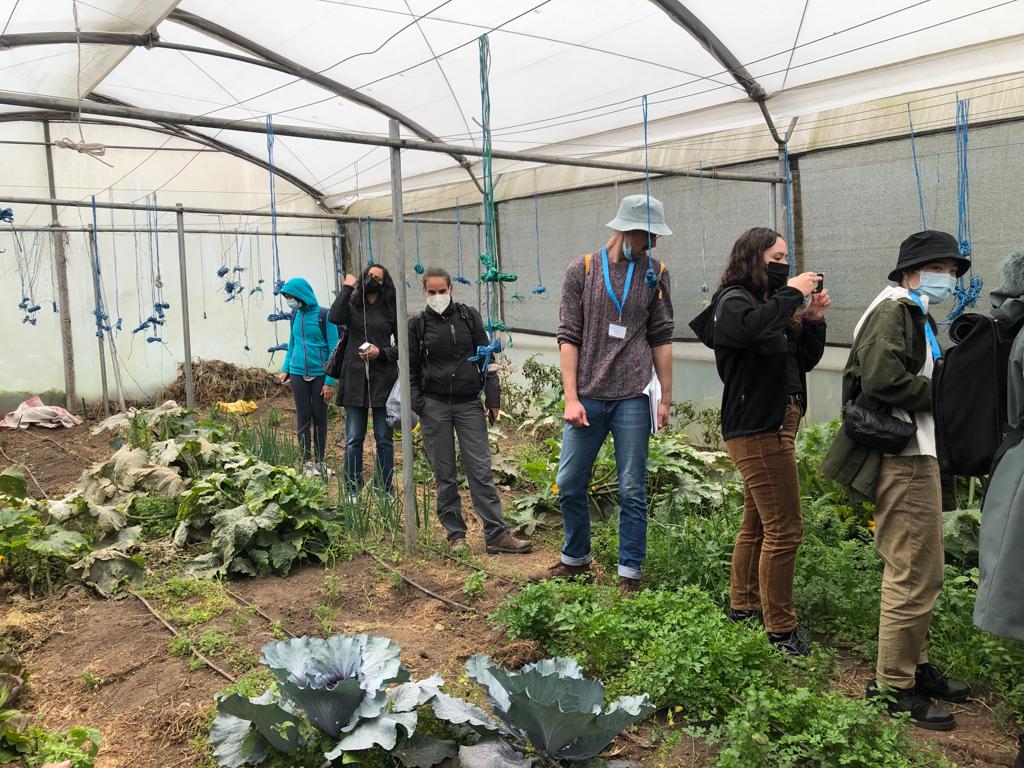
In order to help the MICSEA student collect stakeholder feedback, AYRIWA hosted their second community event to dovetail with the IRS workshop, bringing together key figures of La Lucha de Los Pobres in a family-friendly day celebrating food sovereignty, upcycling, and neighbourhood resilience. The MICSEA teams were able to incorporate their social research strategies into the programme to engage in knowledge sharing with local participants through a series of interactive surveys, visual maps, focus groups and place making activities. The event commenced with a welcoming ceremony for all foreign visitors alongside the sketching of a group mural to advocate AYRIWA’s goals. Finalising the time in the neighbourhood, the MICSEA groups were also given the opportunity to revisit their research areas to triangulate their fieldnotes and further integrate local viewpoints.
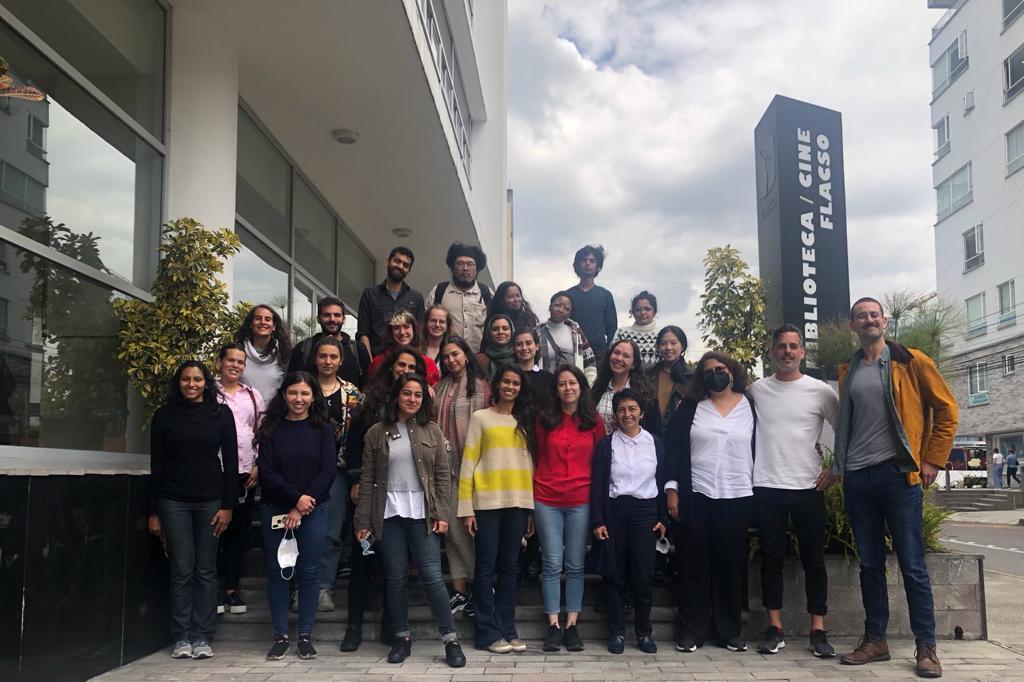
PART 4: SOCIO-SPATIAL INTEGRATION OF THE DATA COLLECTED AND STRATEGIC PROPOSALS
The last step of the workshop was to assess the information gathered from the physical and social research results to develop subject specific proposals that bridged the technical findings and community perspectives formulated by all the project stakeholders. The class was given three days to work on the outcomes, with staged reviews at the end of each day by FLACSO and the workshop faculty. During the development period, teams was given autonomy for the modalities and methods they would use to present their final deliverables, which was encouraged by the project team to enable a participative strategy capturing local voices and student representation. The final proposals were then presented in a capstone event featuring all the workshop stakeholders, including Dr Gonzalo Lizarralde from the Université de Montréal.
The overall outcomes of the 10-day onsite workshop resulted in four unique collective and individual proposals meeting the workshop aims and objectives.
Group 1 – Focused on a prominent green axis through the centre of La Lucha de los Pobres and investigated the community’s perspectives on the use of land for private and shared urban farming.
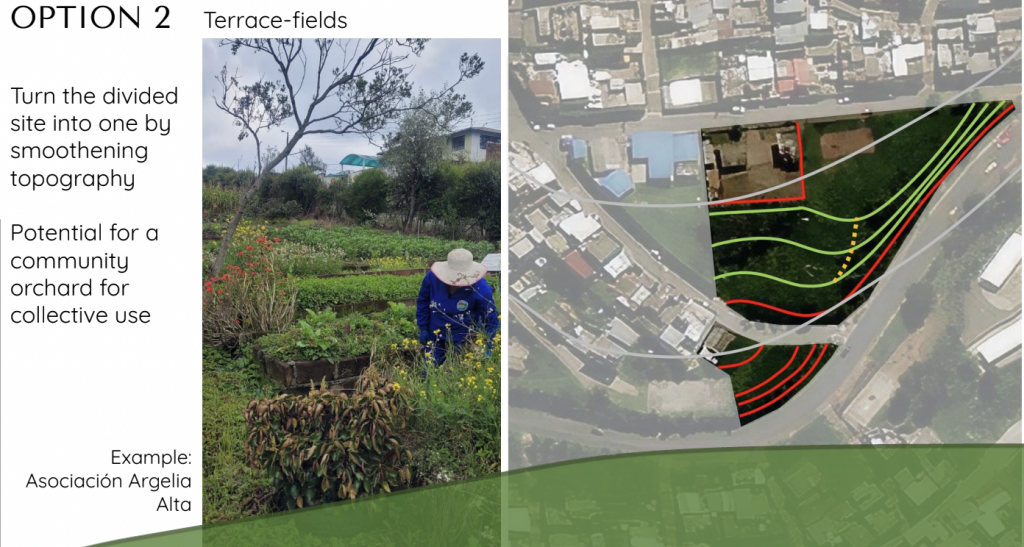
Group 2 – Examined the conditions of the northern border ravine and presented a strategy to revitalise a small area within their study zone. Their primary focus interrogates local stigmas associated with the ravine’s creek system and its connections to shared green areas and public space.
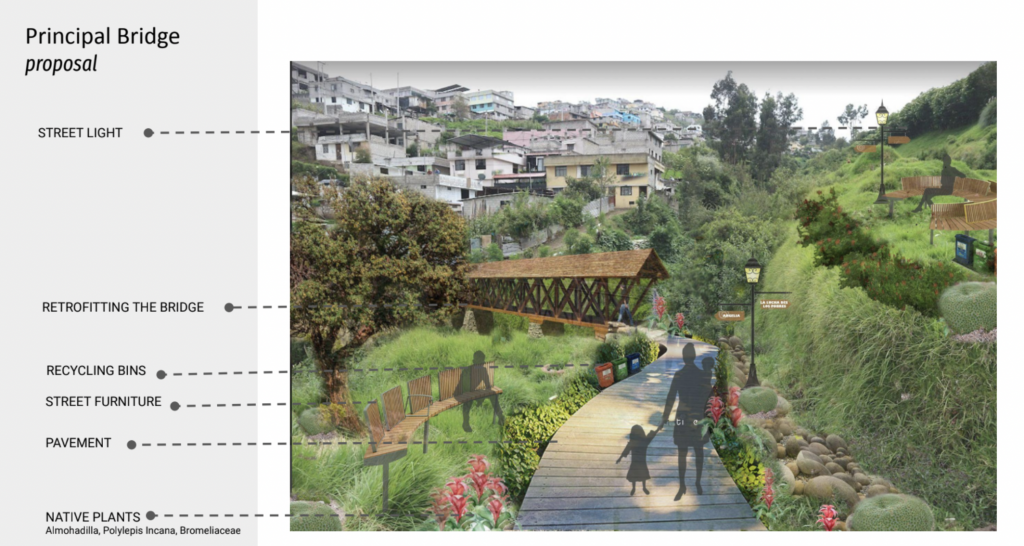
Group 3 – Assessed the histories of past market and activities in the Barrio, using the data to present a reactivation strategy of local trading networks and exchange points for fresh produce. The group focused on key community access points and a green wedge in the centre quarter that connecting the different levels of the town.
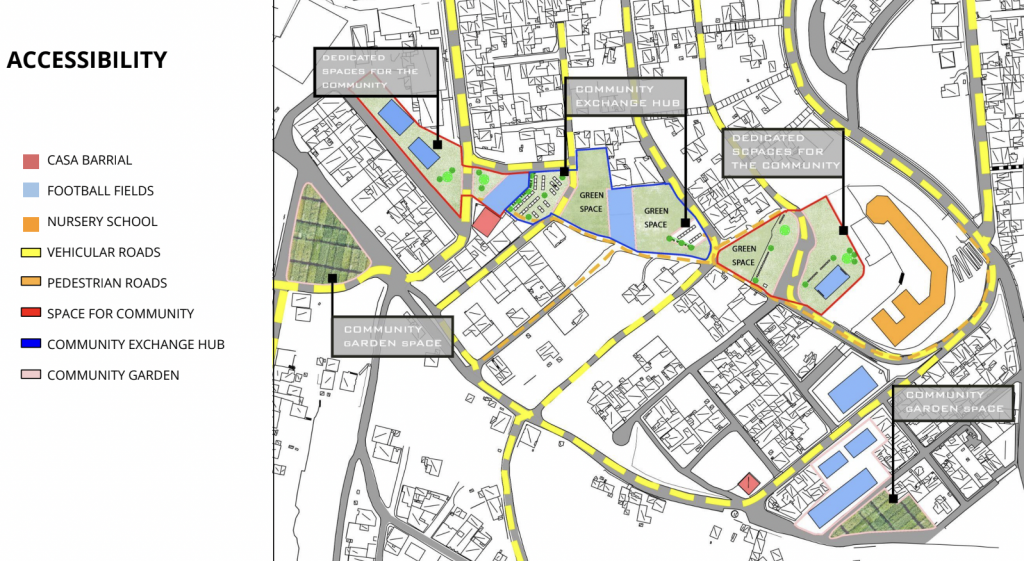
Group 4 – Provided a detailed analysis of the physical mobility in the neighbourhood and actioned stakeholder feedback to propose small-scale infrastructure interventions to increase road and pathway connectivity and safety.
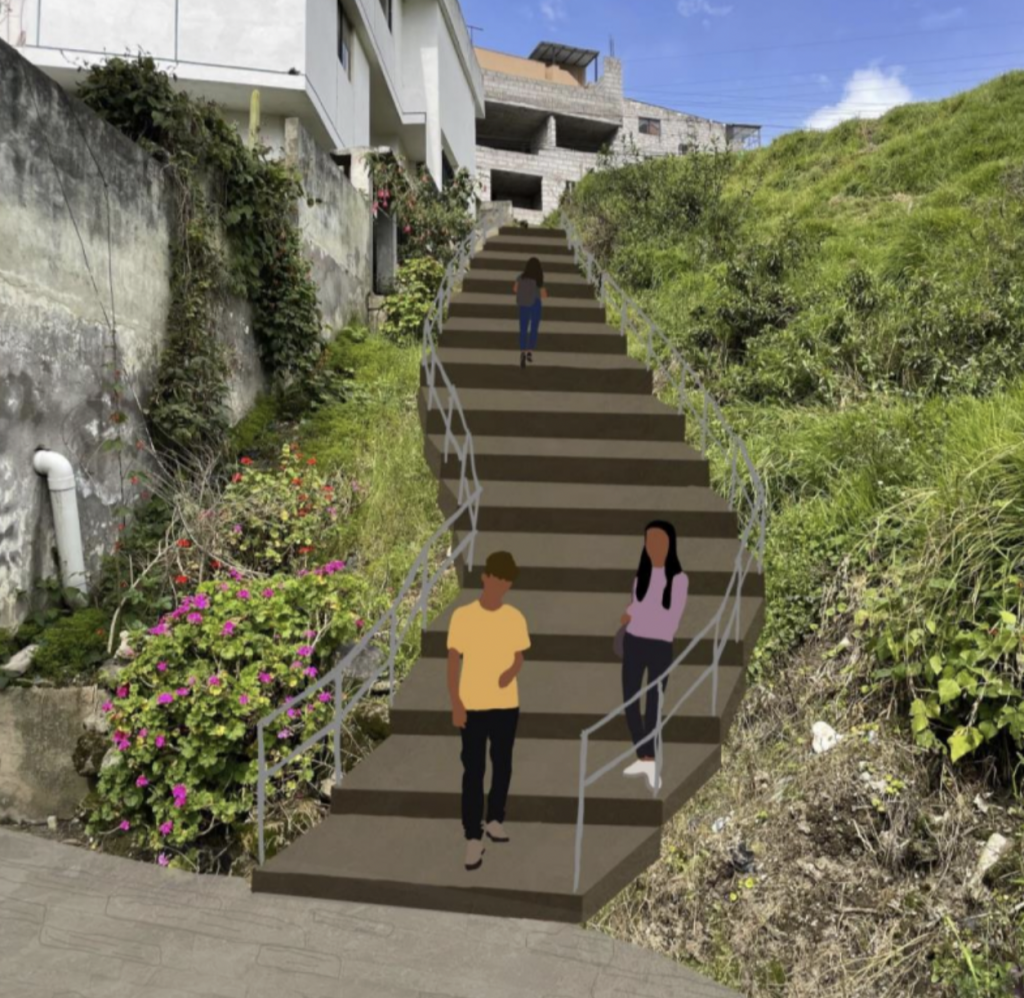
Master Plan – All the groups presented their findings in an interconnected strategy that made the foundations of a small master plan and urban regeneration proposal.
As a conclusion to the workshop, the MICSEA team transitioned their exploratory research to FLACSO as a rudimentary blueprint for further growth and expansion as an ongoing development project. Looking to the future, 2- 3 students will be granted the opportunity to return to the Quito for a 3-month internship to apply a deeper focus on the themes investigated so far. The overall contribution made by MICSEA, FLACSO, AYRIWA and the local community members of La Lucha De Los Pobres has kicked off a long-term initiative that will be revisited by the UIC and partners in the years to come.
Thank you to all the institutions and professionals engaged in the development of this wonderful field trip.
Workshop Coordinators: Master International Cooperation Sustainable Emergency Architecture. UIC Barcelona. Dr. Carmen Mendoza Arroyo and Arch. Farzana Gandhi. Assistant Researcher: Ashley Howard
Collaborating Institutions: FLACSO Ecuador: Myriam Paredes, Paola Rodriguez and Sara Latorre. University of Montreal: Dr. Gonzalo Lizarralde, Gabriela Gonzales and Benjamin Herazo
Local actors: AYRIWA. Consejo comunitario del barrio/ Community neighborhood council: Paulina Alulema y Vanesa Guerrero.
Project part of SUSTENTO ‘Enhancing the resilience of alternative food systems in informal settings in Latin America and the Caribbean through bottom-up initiatives in the built environment.’ A project funded by Canada’s IDRC

